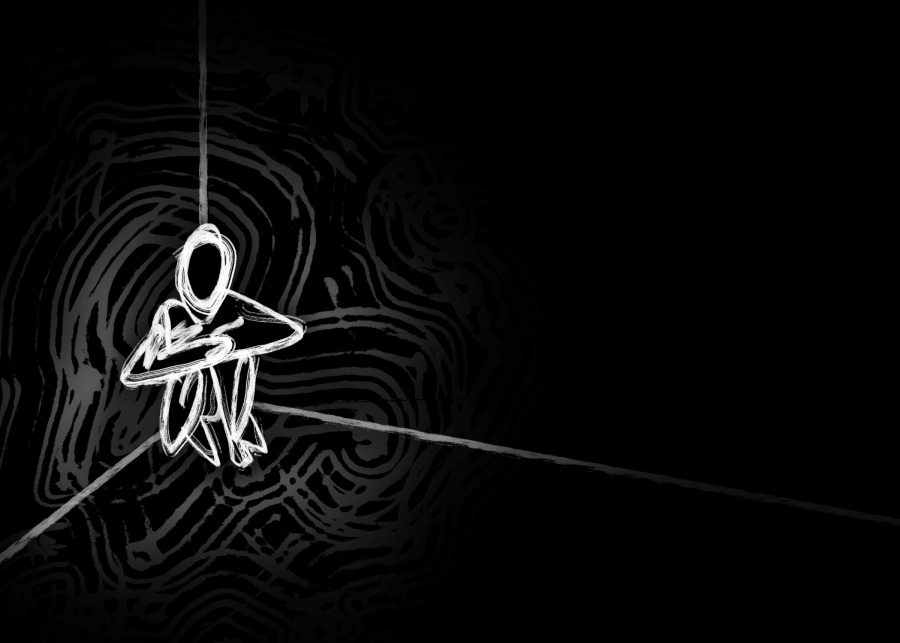When a Patriarchy Hurts Men
Many men today are socially confined to emotional unavailability because of the patriarchy and its ideals of masculinity.
It seems counter-intuitive that the patriarchy would be a detriment to men, but this is true in multiple aspects of the typical male experience. The stigmatization of male emotion and an expectation to be strong, take up space, and provide for a family are all outdated, unnecessary, and harmful to mental health.
Current understandings of gender norms are remnants of a much more overtly patriarchal society. Before the development of modern society, physical strength took precedence over mental ability because it was necessary for survival. Later, the idea of male superiority led to the exclusion of women from education, politics, and the workforce. Although women are now allowed to attend school, vote/run for office, and have control over their income, these are recent developments (within the last century).
The perceived difference between the genders’ emotional capabilities is learned, not intrinsic.
“There really isn’t much of a difference between men and women; they can cognitively process things the same way,” said James Bowling, the AP Psychology teacher at Monte Vista. “The reason you may see differences is because of the way society has set itself up.”
The ideas of what traits and behaviors should be associated with gender are ingrained from a young age. Even as children, people latch onto the concept of gendered colors and the greater physical expectations on boys (recall the elementary school teachers who’d ask for “strong boys” with help moving chairs). With increased access to the internet, influencers that preach a misogynistic mindset (the “Alpha Male” mentality) can reach thousands of adolescents who are in the process of finding their place in society. These ideas are then either magnified as they age, or have to be actively unlearned.
“I definitely grew up thinking that anger or indignation were the main ways I could express myself,” said Anthony Peña, a teacher at Monte Vista. “It took time, suffering, and questions to confront emotions that wouldn’t go into these [categories].”
When an outlet for emotion is anger, suppressed emotions can manifest themselves in violence—possibly a reason for why the overwhelming majority of serial killers and mass shooters are male. While this disparity cannot be entirely attributed to the effects of a patriarchal society, Bowling said that society “would be healthier if we got rid of [mental health stigmas] because more people would go seek help.”
In discussion of traditional gender roles, men are expected to be breadwinners for their families. This mindset is exclusive of certain relationship dynamics, but more importantly, it may men from asking for help when necessary.
“The idea of being the provider is emotionally crippling as well because it means that you’re not allowed to lean on people for something because you’re supposed to be the one to be leaned on,” Peña said.
Another effect of the patriarchy is a hatred of femininity. This is why it’s more socially acceptable for women to exhibit stereotypically masculine traits and wear clothes designed for men compared to the reverse: men who are more stereotypically feminine. These men, who are often part of the LGBTQIA+ community, may then be subjected to homophobia and again, violence.
“A lot of male participation in social structure seems inextricably linked to not being perceived as feminine,” Peña said.
The most extreme example of aversion to femininity is incel culture. Incel is short for “involuntarily celibate,” denoting a group of people who have been unable to find a romantic partner despite desiring one. They’re characterized by hostility toward women and detachment from society. As previously discussed, their unchecked emotions result in violent outbursts like that of Alek Minassian, an incel who drove his truck into a crowd and killed 10 people.
It’s important not to perpetuate the same harmful gender norms with newer generations. Men should take the time to confront the effects of the patriarchy by continuing the conversation around mental health and helping to raise new generations with greater emotional ranges and communicative abilities. Peña does this by telling his children, “Let’s make sure we understand what our feelings are and how we could have dealt with them better.”

Zoe Qian is a senior in her second year on the Stampede. She is the Arts and Entertainment editor and...







